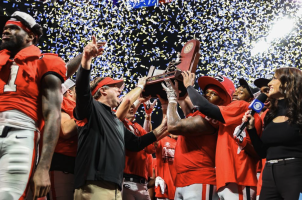Louisiana Sports Betting Tax Hike Proposal Meets Quick Death
Posted on: November 13, 2024, 05:58h.
Last updated on: November 14, 2024, 10:43h.
A proposal to raise Louisiana’s sports betting tax to 51% has quickly been scrapped due to pressure from the gaming industry.

On Monday, Rep. Roger Wilder III (R-Livingston Parrish) proposed House Bill 22 (HB 22), which sought to more than triple the state’s tax on sports wagering to 51% from 15%. If that legislation had passed and become law, it would have put Louisiana on par with New York and Vermont as the states with the highest levies on sports betting. On Wednesday, Wilder asked that the bill be deferred, acknowledging he needs to discuss the matter with the industry.
I have some learning to do,” Wilder said to local media. “I look forward to hearing the testimony from the industry, to gain a deeper insight of what the industry has with respect to their needs and their concerns on this issue.”
Wilder’s legislation, which had bipartisan support, was part of Gov. Jeff Landry’s (R) broader tax proposal aimed at boosting revenue while jumpstarting the state’s economy. The state representative said he will continue working on the proposal, but it’s all but dead for the current session, which expires on November 25.
Sports Betting Tax Hikes Not Going Over Well
Year to date, only Illinois has increased its sports betting taxes, moving to a progressive scheme under which the largest operators by market share pay more than their smaller counterparts.
That state’s decision sparked ample speculation regarding which cash-starved states could follow suit, and while there was plenty of discussion, Louisiana wasn’t projected to be one of the jurisdictions that would move to increase sports betting levies.
Predictably, the gaming industry isn’t keen on tax hikes, noting there is a middle ground at which they can thrive and states can generate needed revenue. Some executives have argued states need to be pragmatic when considering hiking gaming taxes because if those rates rise too far too fast, operators could be forced to pass higher costs onto bettors, which could dent handle and revenue.
Louisiana has an estimated handle of $3 billion, putting in the upper half of states with legalized sports wagering. The state generates nearly $55 million in annual receipts from regulated online sports betting.
Louisiana Sports Betting Tax Had Support, Faced Opposition
It may have caught the industry by surprise that Louisiana — a red state — was home to a sports betting tax hike proposal, but as noted above, Wilder’s bill had bipartisan support. It was also backed by both left- and right-leaning community groups concerned about adverse effects stemming from wagering proliferation.
Regarding industry reaction to Wilder’s proposal, an executive from Caesars Entertainment — one of the largest casino operators in the state — told KLAS News 12 that its investments in Louisiana factor in a 15% tax on sports betting, not 51%.
“You think about our Caesars Superdome sponsorship at a 51% tax rate, we wouldn’t have made that investment,” said Caesars New Orleans Samir Moad in the interview.
Related News Articles
Louisiana Pol Proposes Massive Sports Betting Tax Hike
Florida Flop: Single-License Model Could Dampen Sports Betting Revenue
Sports Betting Seen as Best Hope for Georgia Gaming Expansion
South Carolina Hoping Third Time’s Charm with Sports Betting
Most Popular
FTC: Casino Resort Fees Must Be Included in Upfront Hotel Rates
Genovese Capo Sentenced for Illegal Gambling on Long Island
NBA Referees Expose Sports Betting Abuse Following Steve Kerr Meltdown
UPDATE: Former Resorts World & MGM Grand Prez Loses Gaming License
Most Commented
-
UPDATE: Whiskey Pete’s Casino Near Las Vegas Closes
— December 20, 2024 — 30 Comments -
Caesars Virginia in Danville Now Accepting Hotel Room Reservations
— November 27, 2024 — 9 Comments -
UPDATE: Former Resorts World & MGM Grand Prez Loses Gaming License
— December 19, 2024 — 8 Comments -
FTC: Casino Resort Fees Must Be Included in Upfront Hotel Rates
— December 17, 2024 — 7 Comments
















No comments yet